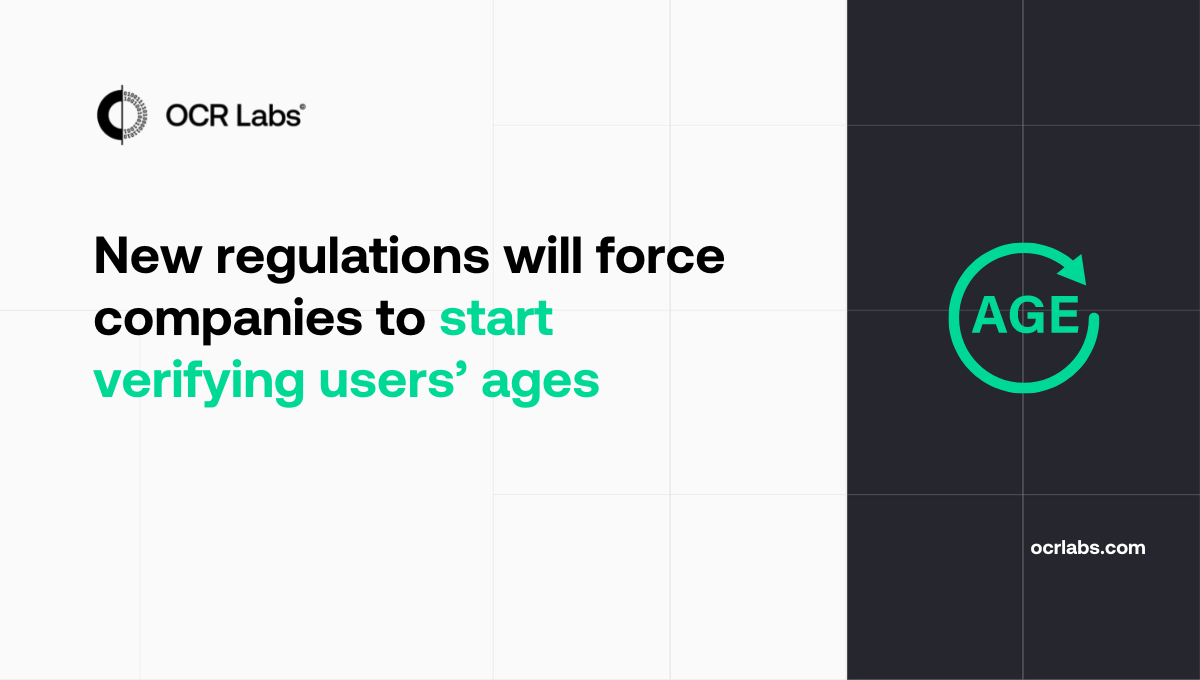Offering age-restricted content online is nothing new – pornography, for example, has been available for as long as the internet has. But in recent years, with the pandemic forcing an acceleration to remote and digital transactions, even more ‘adult content’ is available through apps – not only can people access OnlyFans any time of day, in many regions people can also place bets on sporting events, play games for real money, order a delivery of alcohol, tobacco, or even marijuana, or rent an electric scooter or a car.
The bigger moral questions about what content we allow people to access and when aside, there are already laws governing the age that someone can legally smoke, drink, or drive a car. So, companies have an obligation to ensure that they are not allowing minors to access any of those things – even without knowing it.
But how can we do this now when renting a car for the day no longer requires you to turn up at a fluorescently-lit garage near an airport?
Remote age verification and estimation
The answer actually lies in the question – you do it using mobile phones. Instead of having a person present a government-issued ID document (like a driver’s licence) to a human clerk, many activities allow you to hold the document up to your phone camera and be quickly on your way to whatever fun you had in mind.
The trouble is that not all digital age verification systems are equally effective. We probably all visited some kind of website with a pop-up box that asks you to confirm that you are over 18, but ticking a box is hardly as stringent a measure as a bouncer physically scanning your ID at a nightclub – although even that isn’t exactly foolproof.
Best practices for digital age verification
To ensure that you’re not letting any underage people illegally access something you’re selling, whether that be access to an electric scooter or a bottle of tequila delivered to their door, you’ll need to find a way to verify their age that can’t be duped.
Since the person who is using the ID document won’t be stood in front of you, you don’t just need to verify that the ID document is real, and that the person represented on that document is over 18 (or 21, or 25 as the case may be). What if the ID is real, and the person whose ID document it is turned 70 this year? That doesn’t rule out the possibility that a crafty teenager swiped their uncle’s driver’s licence. Maybe they even have a familial resemblance and the photo doesn’t look lightyears away from the face of the user.
That means you need biometric verification with liveness – that is, a way of ensuring that not only is the ID real, it actually belongs to the person who is showing it to you via your app. They are live and present, and genuinely making the request.
The rules to date
Regulations in the physical world have not yet transferred to the digital world in quite the same way, meaning that the existing requirements don’t always prevent harm to children and vulnerable people caused by providing access to prohibited content and/or goods.
Right now, you might not be required to do anything more than a perfunctory check. You might think you are satisfying the rules and regulations by just informing users that they have to be over 18, or asking them and taking their word for it.
There is an ethical friction within companies between doing what is right vs what is required under regulation. The main purpose of a company is to be profitable – and that might be in conflict with doing what is right.
New laws are coming
We know that the current system isn’t working – research in the UK in 2022 found that delivery drivers handed over bottles of alcohol without seeking proof of age, and that drivers were also confused about different retailers’ policies on age verification. But the reason many companies haven’t yet decided to do better is that they haven’t been forced.
That’s set to change. New laws are already coming into play requiring more stringent age checks to be conducted. Laws in New South Wales, Australia were passed in the summer of 2022 requiring online sellers of alcohol to verify the age of each customer online before agreeing to make a same-day delivery and reauthenticate those customers when they place future orders.
While this is a great step forward, these laws need to go further in order for organisations to deliver on the intent of preventing harm to minors. For example, laws could mandate the use of biometrics. This would prevent companies from deflecting responsibility to their delivery drivers, which can put them at risk.
More, evolving laws will follow. But the good news is that biometric identity verification with liveness is already available. If you want to stay ahead of your competitors, you don’t have to wait until you’re required to – you can start now.


